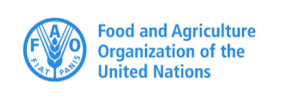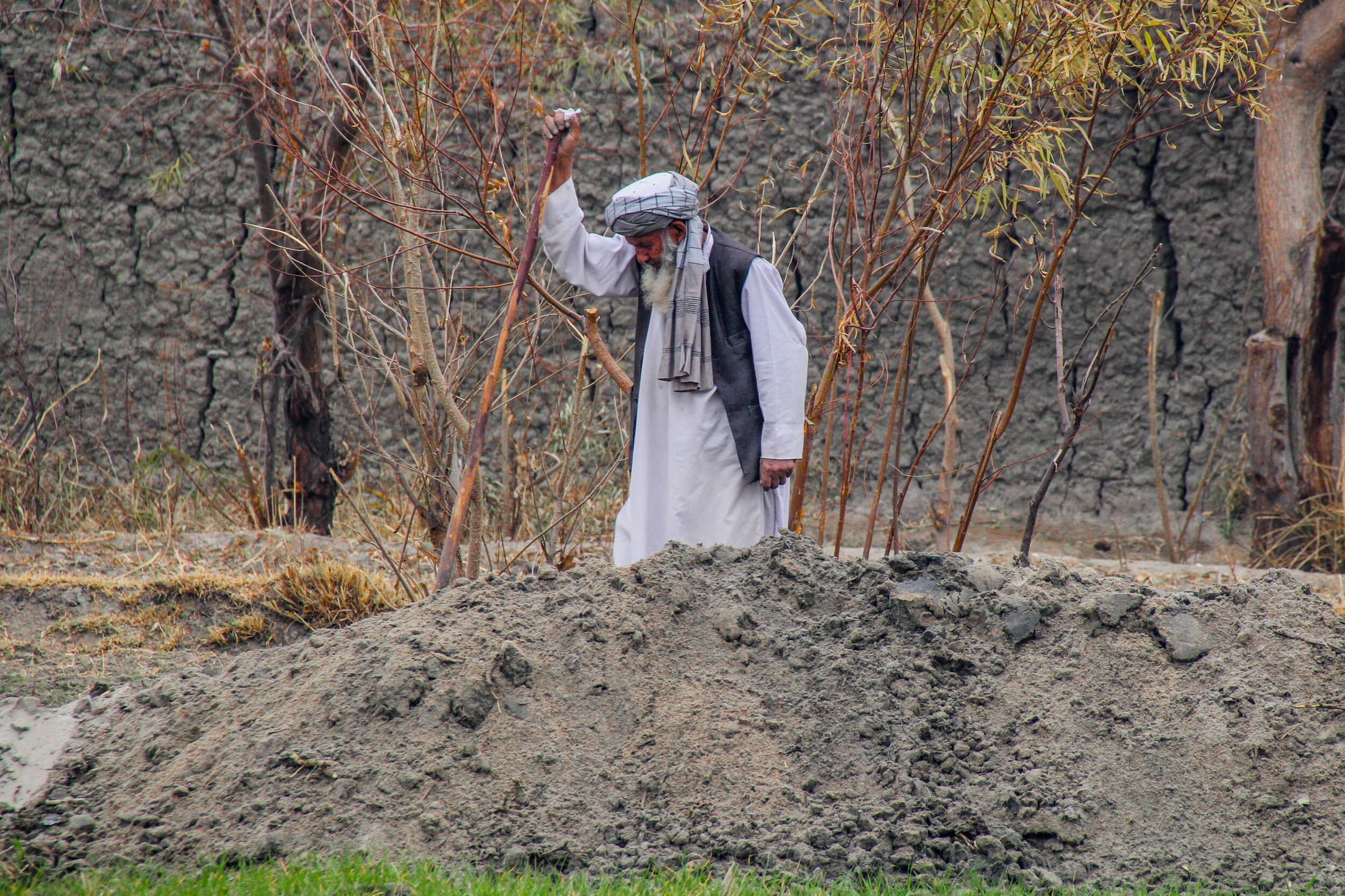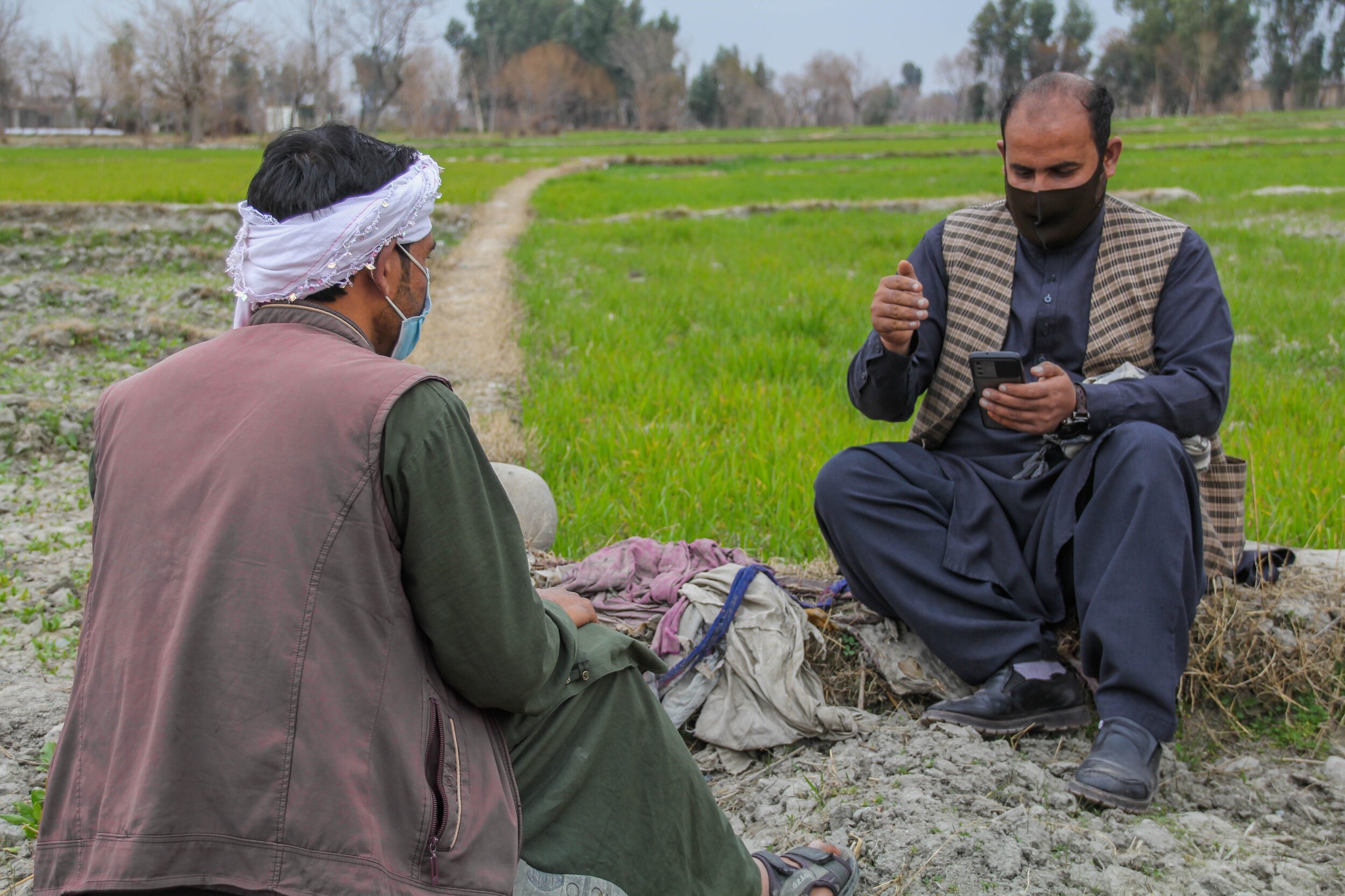
From February 2020 to October 2021, 688,753 COVID-19 tests were administered in Afghanistan, with 194,234 returning positive results (28.2%). Regions with high infection rates also faced severe food insecurity and acute malnutrition. In response, Adroit Associates launched an initiative for FAO, crucial for promoting sustainable food systems and reducing poverty. This project aimed to assess and mitigate COVID’s impact on Afghanistan’s agricultural sector and food security. It was essential for promoting healthy, sustainable, and inclusive food systems, which are vital to global development goals and poverty reduction. As highlighted by the World Bank, agricultural development is particularly effective in boosting incomes for the poorest, making it a key element in enhancing living standards in underdeveloped areas like Afghanistan.
This project aimed to address the urgent need for data to inform policies capable of mitigating the adverse effects of the pandemic on agricultural livelihoods and food security. Conducted during a period of significant socio-political upheaval, the project sought to:
- Assess the impact of COVID-19 on agricultural sectors critical for rural household stability and economic resilience.
- Support FAO’s decision-making processes to strengthen the agricultural value chain.
Objectives
The primary objective was to establish a comprehensive monitoring system to better understand and respond to the impacts of the pandemic on food supply and agricultural livelihoods. Specific goals included:
- Conducting extensive surveys across 20 provinces to gather actionable data.
- Utilizing this information to formulate effective strategies for enhancing food security and agricultural development.
- Creating a robust database to aid in the ongoing assessment of COVID-19’s effects and facilitate timely interventions.
Our Approach
Adroit Associates employed a multifaceted approach in executing the FAO project, combining advanced digital tools, traditional methodologies, and rigorous health and safety measures. This comprehensive strategy was designed to address the complex challenges of data collection across 20 diverse provinces in Afghanistan.
Digital and Traditional Data Collection Methods: The approach included the use of KOBO Toolbox for real-time data capture, allowing for efficient and secure data collection and transmission. In areas with limited internet access or where security risks restricted the use of digital devices, traditional paper-based surveys were employed. This dual-method strategy ensured that data collection was resilient and adaptable to varying local conditions.
Training and Capacity Building: Before field deployment, over 40 skilled enumerators were meticulously trained in data collection techniques and comprehensive health and safety protocols. This training included proper hand hygiene, the use of personal protective equipment (PPE), and adherence to social distancing practices to ensure the safety of both the team and the communities they engaged with.
Community Engagement and Ethical Considerations: The strategy also involved active engagement with local communities and government officials, facilitating a holistic approach to data collection and analysis. Adroit Associates adhered to a strict code of ethics, addressing significant concerns around consent, confidentiality, anonymity, safeguarding vulnerable people, and the potential impact of the research on both participants and researchers.
Adapting to Local Conditions: The methodology was specifically designed to be flexible, allowing adaptations to the volatile environment of Afghanistan, where access to remote and conflict-affected areas was often restricted.
This multifaceted approach ensured comprehensive data coverage and respected the dignity and rights of all participants, providing reliable and actionable insights to FAO while navigating the complex and dynamic challenges present in Afghanistan.
Implementation
The implementation of the project faced significant challenges due to a rapidly changing political landscape and ongoing security concerns. Adroit Associates navigated these complexities with a dynamic approach that included continuous monitoring of political and security updates, allowing for real-time adjustments to field plans. This adaptability was crucial in managing logistical hurdles across 20 provinces, ensuring the safety and efficiency of staff.
The project’s extensive data collection involved reaching out to 7,200 households and conducting 378 key informant interviews. The workforce, meticulously trained before deployment, conducted in-depth household interviews with farmers and key informant interviews with agri-input vendors and agri-extension workers. This approach was essential for tracking the impacts of the COVID-19 pandemic and collecting data crucial for assessing its effects on agricultural livelihoods.
Key findings from the implementation period highlighted the severe impact of COVID-19 on agricultural sectors, affecting rural household stability and economic resilience. The data collected informed FAO’s strategic decisions, leading to recommendations that strengthened the agricultural value chain and enhanced supply chain resilience. These efforts supported FAO’s decision-making processes in addressing the disruptions caused by the pandemic.
Through rigorous data verification, analysis, and reporting, Adroit Associates provided FAO with actionable insights, demonstrating the importance of adaptability and strong local networks in facing socio-political and logistical challenges. This approach helped deliver crucial data to support agricultural communities in Afghanistan during a period of extraordinary difficulty.
Challenges and Lessons Learned
The project encountered significant challenges due to the volatile socio-political climate in Afghanistan. The sudden régime change in mid-August particularly disrupted data collection activities, slowing progress and posing risks to the safety of personnel. Adroit Associates overcame these challenges by leveraging strong local collaborations with community leaders and authorities, which facilitated access to remote and conflict-affected areas. GPS and mapping tools were employed to navigate challenging terrains, and flexible deployment strategies allowed teams to adjust quickly and safely in difficult conditions. Smaller, more agile teams were formed to enhance maneuverability and efficiency.
From these experiences, valuable lessons were learned about the importance of adaptability and the need for strong local networks. Adroit Associates demonstrated agility by swiftly restructuring the team and modifying operational plans to align with the new political context. This experience highlighted the capability to effectively negotiate and navigate bureaucratic and logistical challenges, providing insights that will guide future projects, particularly in regions experiencing political and social instability, ensuring better preparedness and response strategies.




